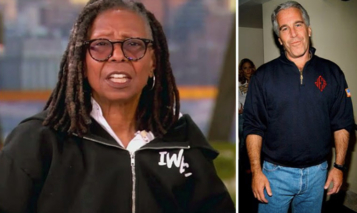
A Nigerian scammer claims he is the mystery man behind a plot to sell Elvis Presley’s famed Graceland at a foreclosure auction.
Presley’s granddaughter, Riley Keough (pictured above), blocked the sale by filing an injunction and a lawsuit against the mysterious “Gregory Naussany.”
Naussany claimed Presley’s only child, Lisa Marie Presley, took out a $3.8 million loan from his company, Naussany Investments & Private Lending LLC, in 2018.

The scammer claimed Lisa Marie (pictured) used Graceland as collateral and never paid back the loan before she died in January 2023.
Naussany sued the Graceland estate, and a judge approved the foreclosure sale which was set for May 23.

Riley Keough, who inherited the iconic estate when her mother died, filed an injunction to stop the sale. She insisted that Naussany forged Lisa Marie’s signature on the “fraudulent” loan documents.
A judge granted a restraining order against Naussany, who never showed up to court last week.
Reporters attempted to contact Naussany, but his phone number listed in court documents was not a working number.
Then DailyMail.com emailed an address listed in a court filing for “Gregory Naussany” – gregoryenaussanyniplflorida@hotmail.com.
Naussany (if that’s his real name) responded to the email, saying he dropped his claim to sell Graceland.
The New York Times contacted Naussany via the same email. He responded and claimed the whole thing was an elaborate scam to steal the famed estate.
“I am the one who creates trouble,” he wrote. He added that Riley Keough beat him at his own game.
He also admitted to stealing property from elderly and deceased Americans — because judges are often too eager to foreclose on houses with very little paperwork required.
“We figure out how to steal. That’s what we do,” the scammer admitted.
“I had fun figuring this one out and it didn’t succeed very well.”
The scammer complimented Riley Keough on defeating them.
“Yo client dont have nothing to worries… win fir her [sic],” the scammer wrote. “She beat me at my own game.”





